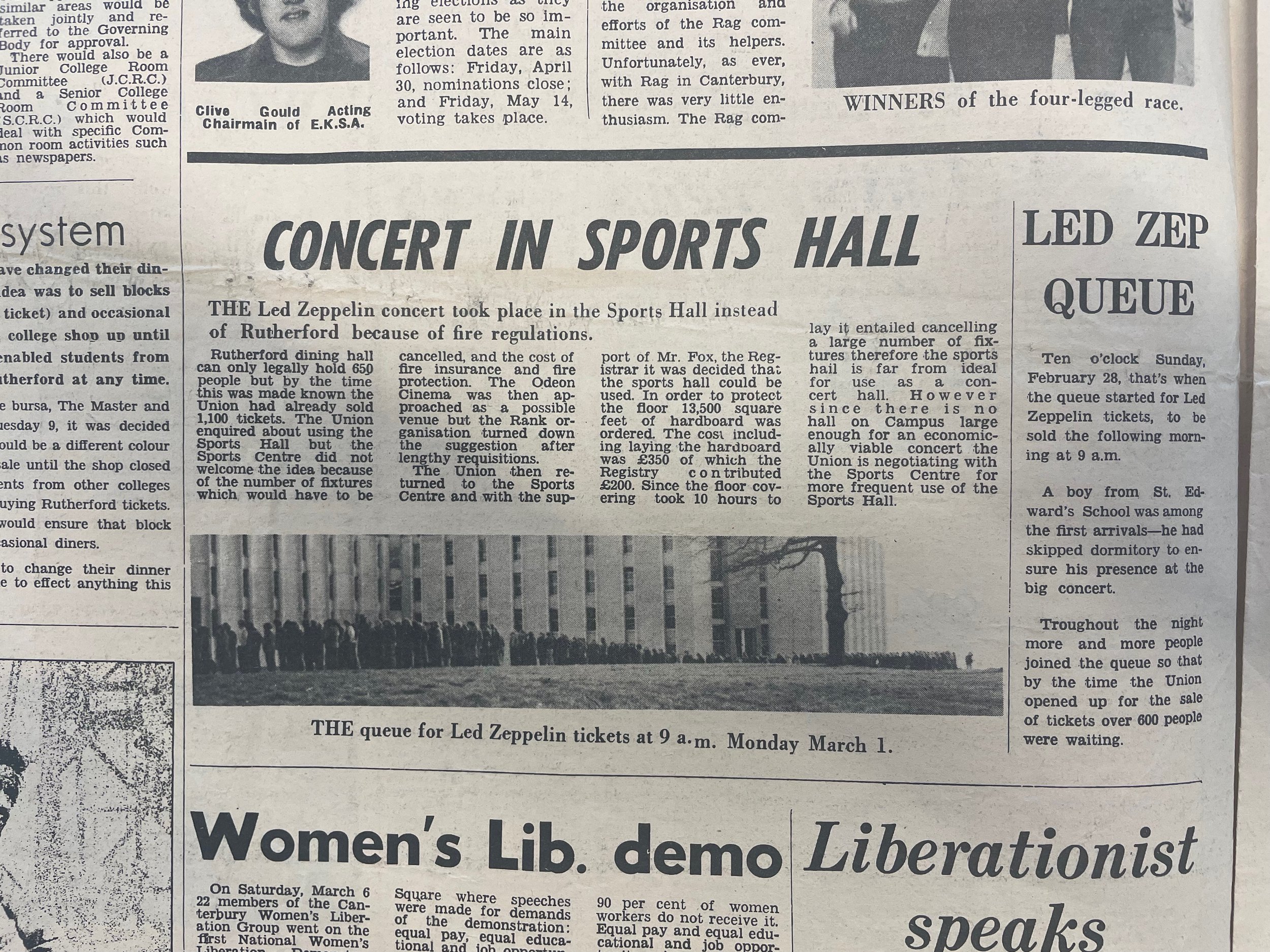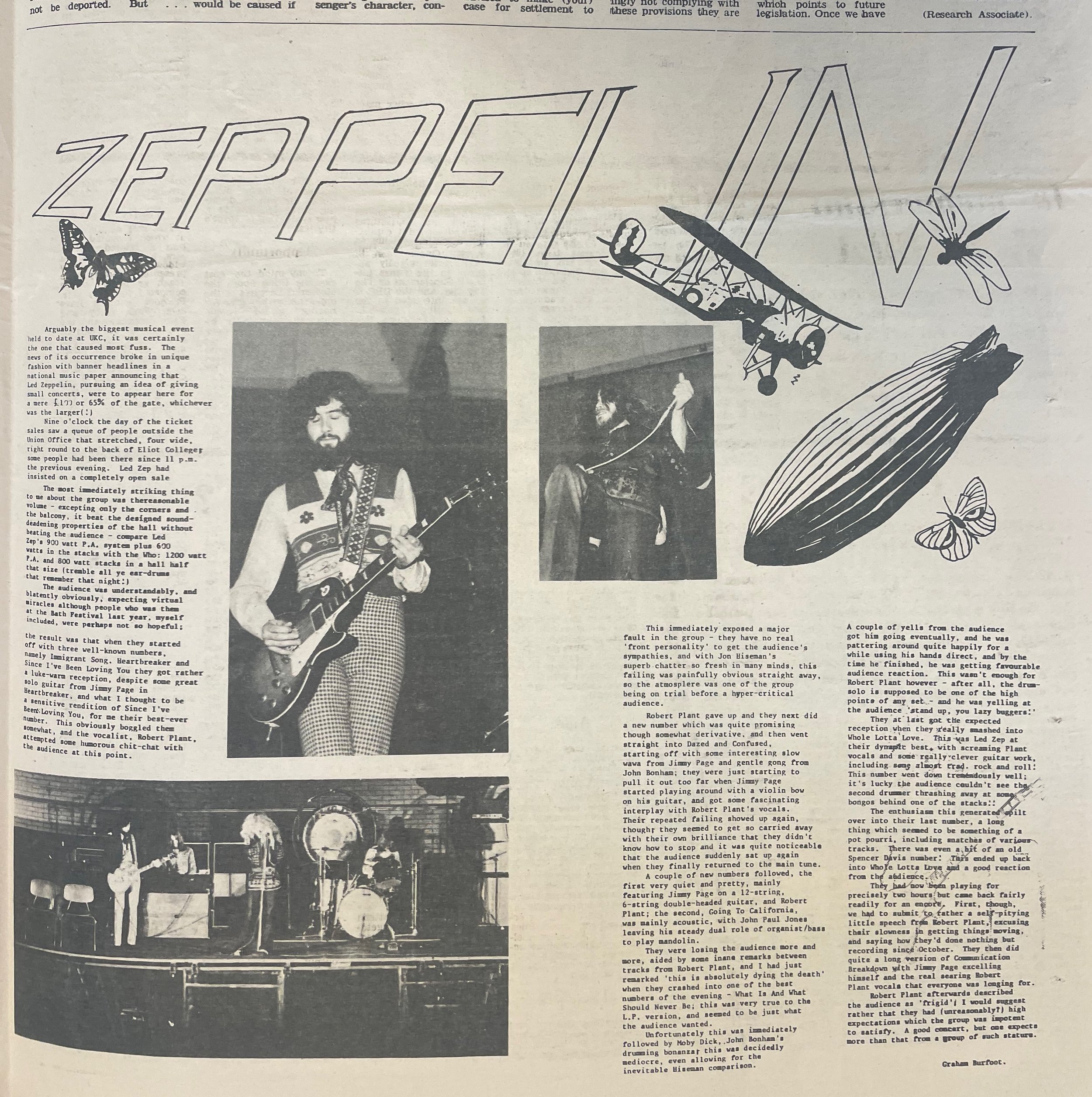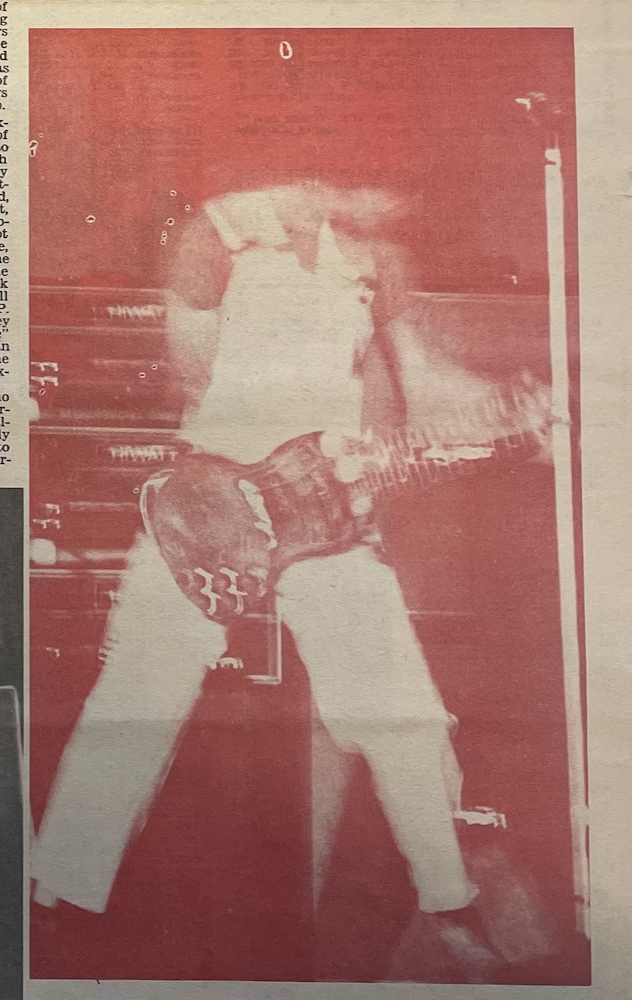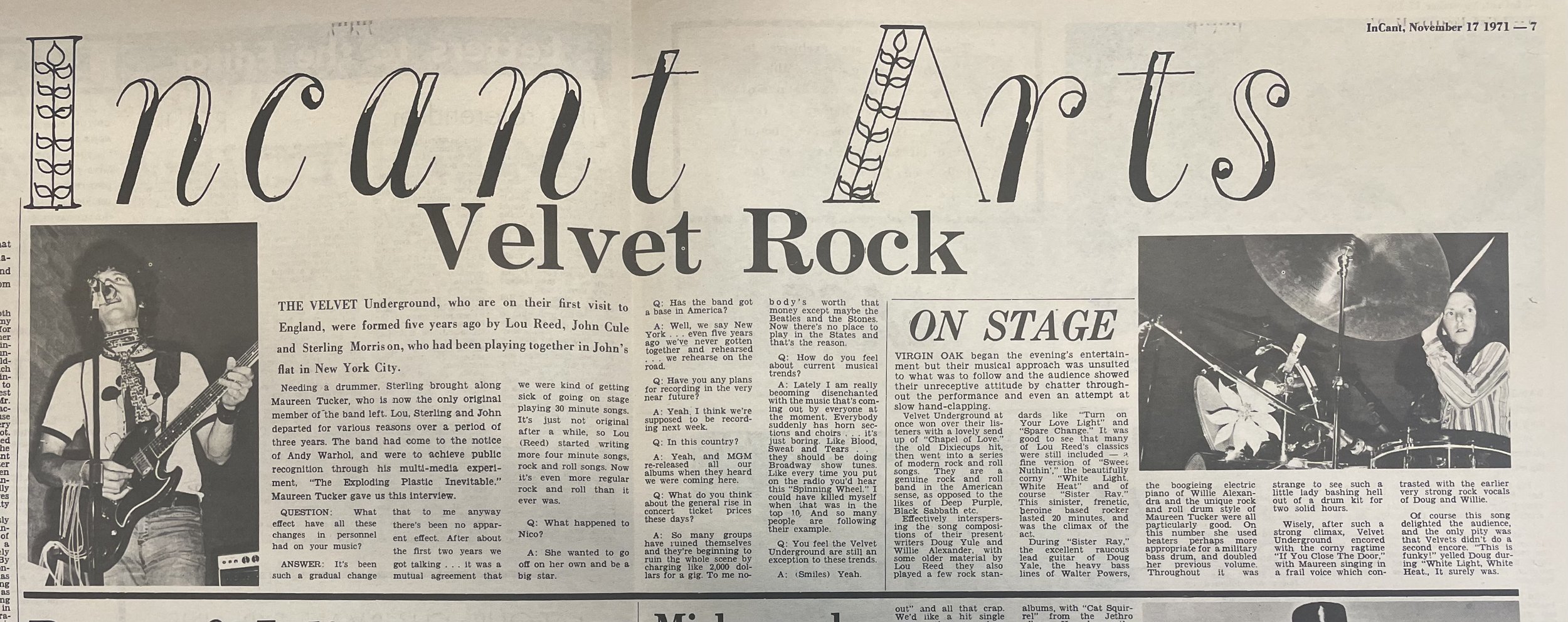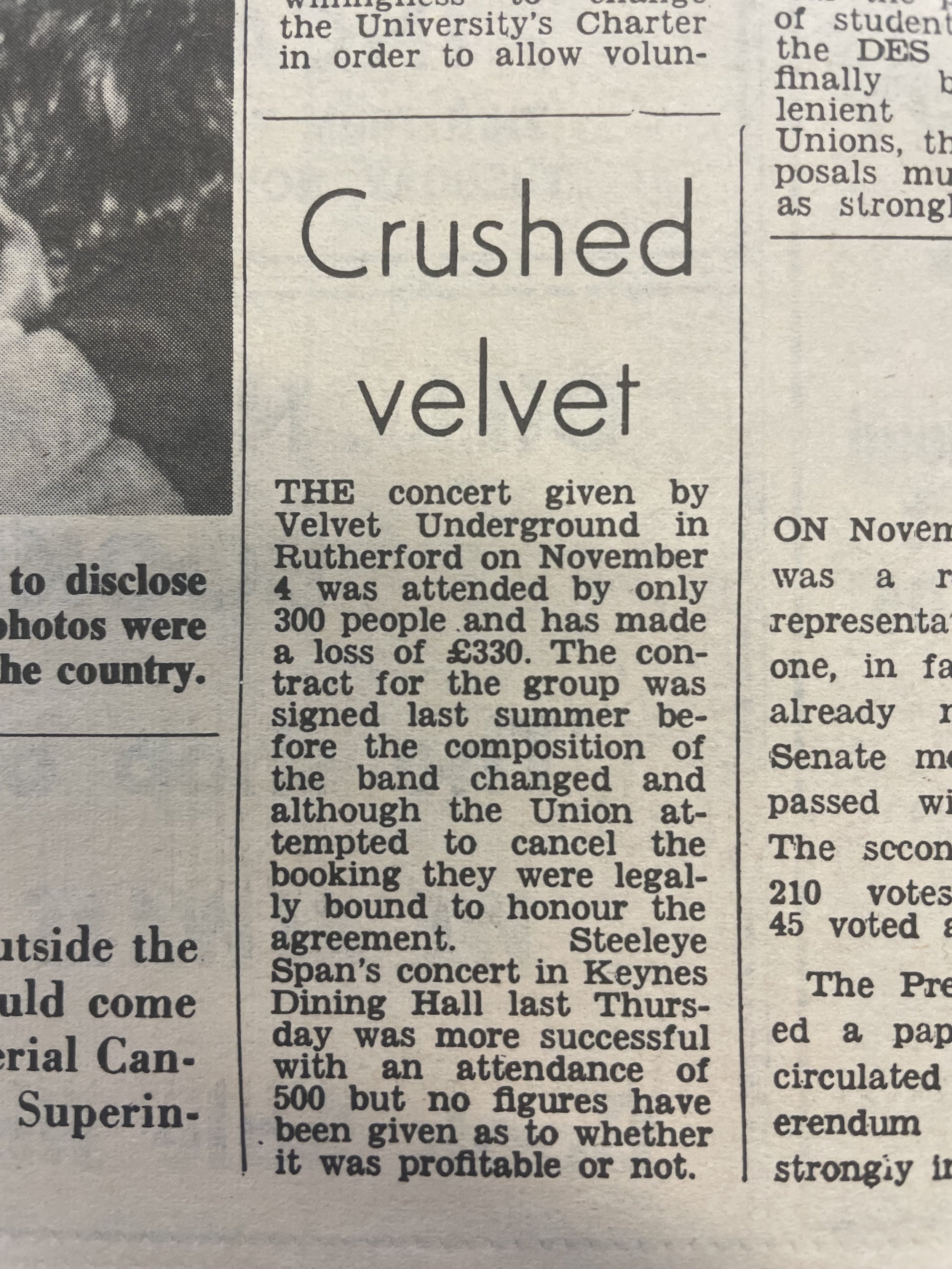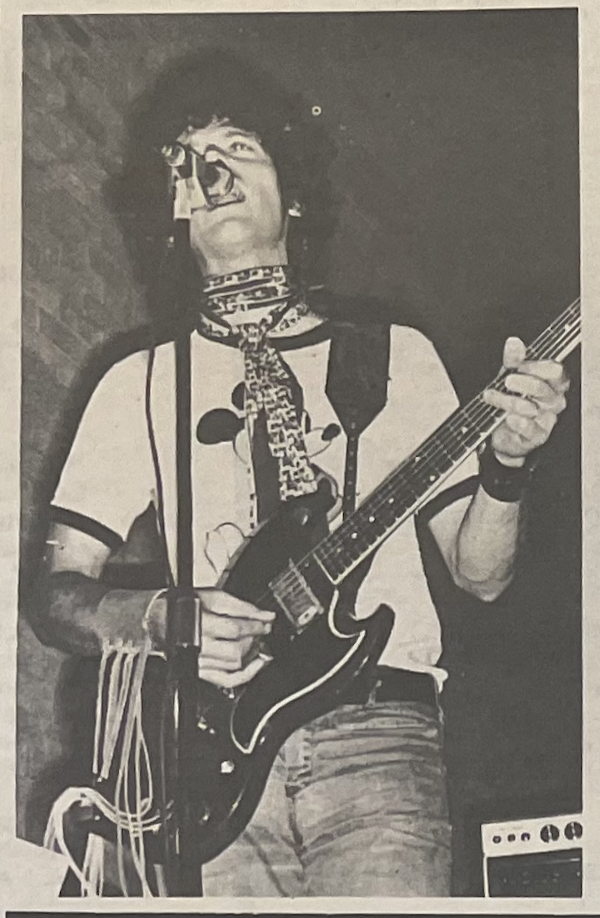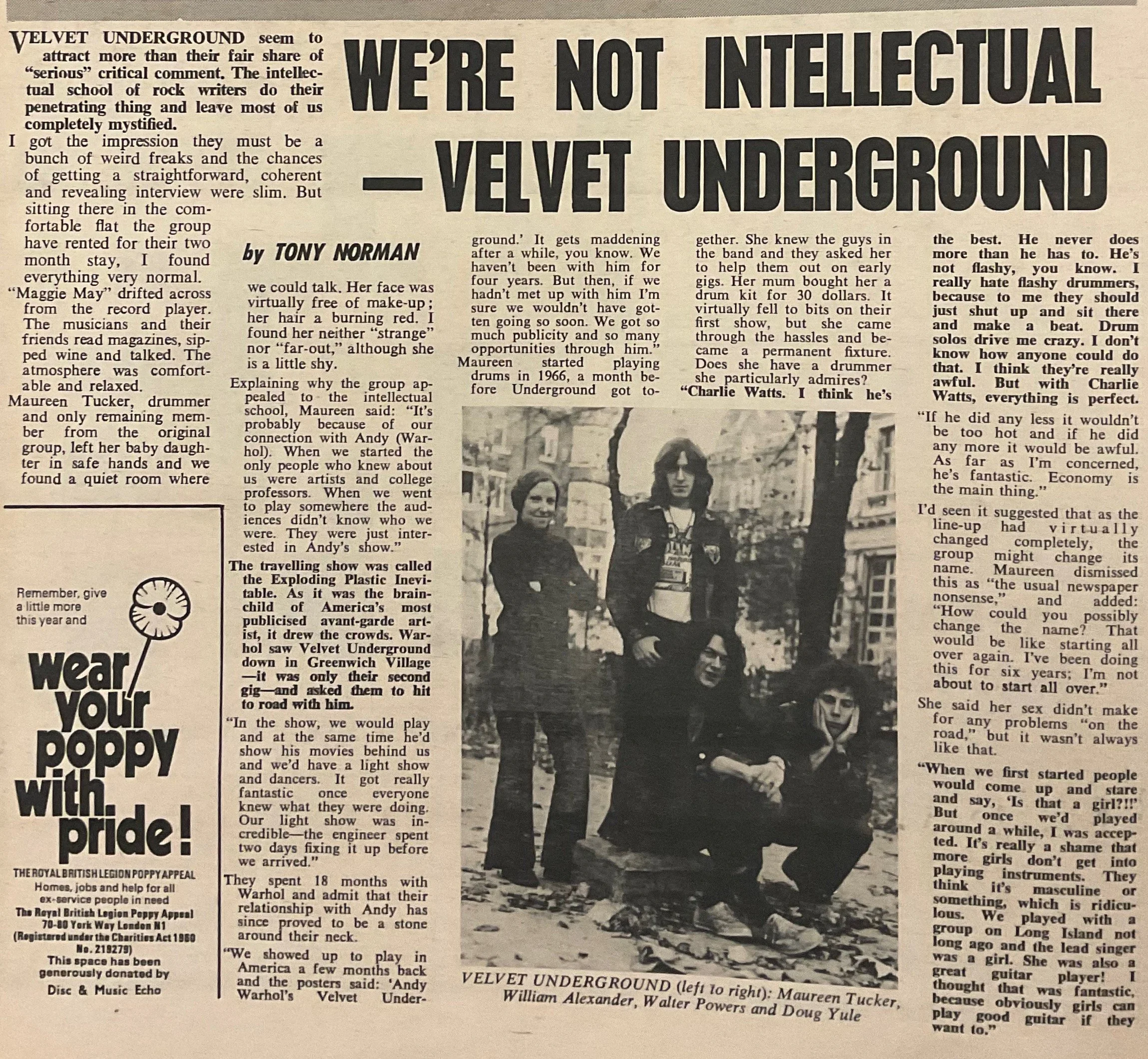I’ve eaten a good many meals in Rutherford Dining Hall, the idea of Led Zeppelin playing there, as rumour had it, seemed as fanciful as them playing the even smaller venue Bridge Place Country Club (now a restaurant) in a village near to Canterbury. I’ve been there once and I can’t figure out where they would have played – all the rooms seem entirely inadequate for a rock band. . .
The Who had played Eliot Dining Hall the year before, which is the same size as Rutherford, holds approximately 600 bodies, but then, as it turned out, the event took place in the Sports Hall and not where I bought chips and beans.
The gig was part of Zeppelin’s ‘Back to the Clubs’ tour and their sixth UK jaunt, the idea was to reconnect with their audience. . . . which Robert Plant, at least for this reviewer, singularly failed to do . . .
Back when they played in Bridge in December 1968, Zeppelin were billed locally as ‘The Yardbirds’, possibly the last time they were promoted as such in Britain.
Before the three original Yardbirds up and quit on him in the Spring of 1968, Jimmy Page had played alongside Keith Relf, Jim McCarty and Chris Dreja for the University’s Summer Ball, 1967 . . . Their performance was slammed in the student paper InCant.
No Ball!
NOT AGAIN! YES, AGAIN I’M AFRAID – ANOTHER ASTERICK-AWFUL DANCE!
The really significant word in the above statement/exclamation is ‘Dance’. Friday the 2nd of June was to be the University of Kent at Canterbury Summer Ball. What we actually got was a rather upper-second-rate hop.
What price non-culmination? About £200 in the red! Much of this debt probably due to the £300-odd paid for 50-minutes’ ‘worth’ of un-danceable Yardbirds.
To cap it all, the buffet served day-old lemon mousse . . . . the horror
In defence of The Yardbirds, there were complaints about nearly every band subsequently booked for freshers week or the end of year ball. You couldn’t dance to any of them and they were always too loud and money was inevitably lost . . . Of all the bands who played the University in the 1960s and first half of the 1970s – Manfred Mann, Kinks, The Move, Procol Harum, Ten Years After, The Who – only Fairport Convention, twice, turned a profit. University gigs were subsidised and always ran at a loss, but lemon mousse, at least, was never again on the menu . . .

